Retrospective sites
Boston VAMC
Harvard University & Beth Israel Deaconess Medical Center
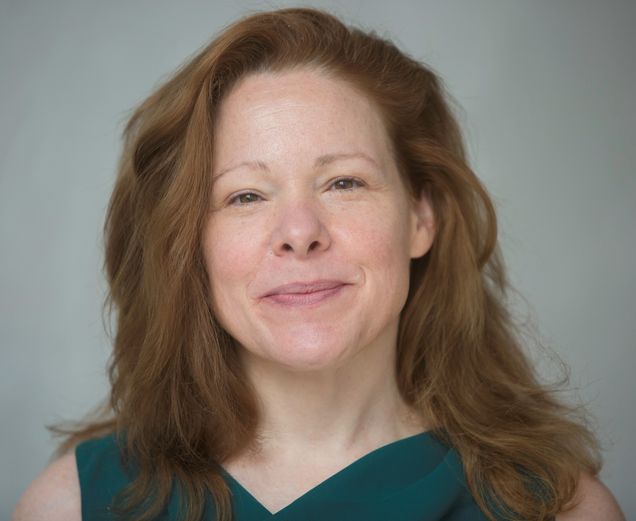 Dr. Lisa Conboy is a social epidemiologist and a sociologist with an interest in the associations between social factors and health. She is published in the areas of Women’s Health, Complementary and Alternative Medicine, and qualitative research methodology. An Instructor at Beth Israel Deaconess Medical Center, Harvard Medical School, she is also the research director and faculty at the New England School of Acupuncture at MCPHS where she teaches research methodology and oversees multiple projects. She is also a founding member of the Kripalu research collaborative which examines the mental, physical, and spiritual benefits of yoga, meditation, Ayurveda and other holistic and mind-body therapies.
Dr. Lisa Conboy is a social epidemiologist and a sociologist with an interest in the associations between social factors and health. She is published in the areas of Women’s Health, Complementary and Alternative Medicine, and qualitative research methodology. An Instructor at Beth Israel Deaconess Medical Center, Harvard Medical School, she is also the research director and faculty at the New England School of Acupuncture at MCPHS where she teaches research methodology and oversees multiple projects. She is also a founding member of the Kripalu research collaborative which examines the mental, physical, and spiritual benefits of yoga, meditation, Ayurveda and other holistic and mind-body therapies.
Harvard University & Massachusetts General Hospital
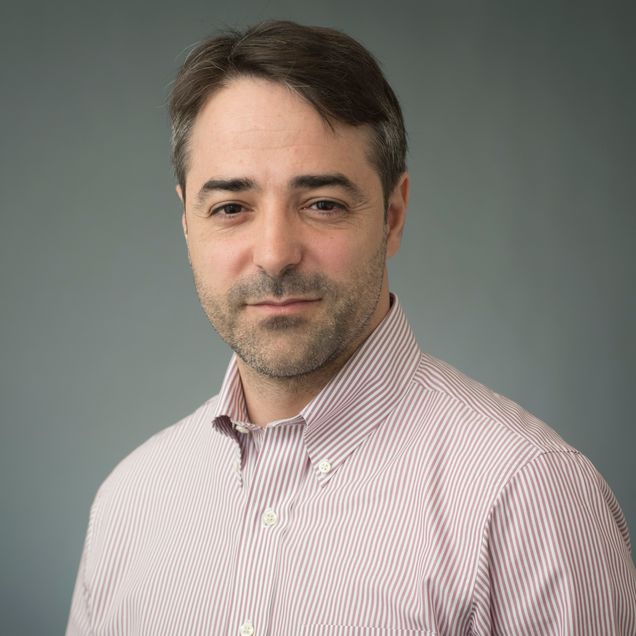 Dr. Marco Loggia is an Associate Professor at Harvard Medical School, and faculty at the MGH/HST A. A. Martinos Center for Biomedical Imaging. He was awarded a Ph.D. in Neurological Sciences by McGill University in Montreal, QC (Canada) in 2008. During his graduate studies, he had the opportunity to work at the Alan Edwards Centre for Research on Pain (formerly McGill Centre for Research on Pain), under the mentorship of its first director, Prof. M. Catherine Bushnell, a pioneer in the field of human pain imaging. Between 2008 and 2013, he held the position of Research Fellow at Harvard Medical School, and worked in the laboratories of Drs. Robert R. Edwards and Ajay D. Wasan at Brigham and Women’s Hospital, and Drs. Randy L. Gollub and Vitaly Napadow at Massachusetts General Hospital. In 2013, he became a faculty at Harvard Medical School and Massachusetts General Hospital.
Dr. Marco Loggia is an Associate Professor at Harvard Medical School, and faculty at the MGH/HST A. A. Martinos Center for Biomedical Imaging. He was awarded a Ph.D. in Neurological Sciences by McGill University in Montreal, QC (Canada) in 2008. During his graduate studies, he had the opportunity to work at the Alan Edwards Centre for Research on Pain (formerly McGill Centre for Research on Pain), under the mentorship of its first director, Prof. M. Catherine Bushnell, a pioneer in the field of human pain imaging. Between 2008 and 2013, he held the position of Research Fellow at Harvard Medical School, and worked in the laboratories of Drs. Robert R. Edwards and Ajay D. Wasan at Brigham and Women’s Hospital, and Drs. Randy L. Gollub and Vitaly Napadow at Massachusetts General Hospital. In 2013, he became a faculty at Harvard Medical School and Massachusetts General Hospital.
He is a recipient of the 2013 Early Career Award from the International Association for the Study of Pain (IASP) and the 2016 IASP Ulf Lindblom Young Investigator Award for Clinical Science, and the Primary Investigator of several federal and foundation grants, including from the National Institute of Neurological Disorders and Stroke (NINDS/NIH) and the Department of Defense.
Drexel University
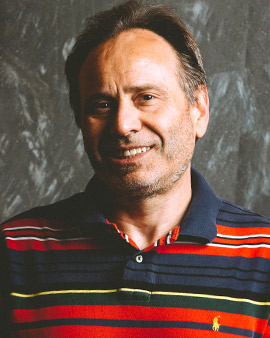 Dr. Peter Baas is Professor at Drexel University College of Medicine in the Department of Neurobiology and Anatomy. He is the leader of the Drexel Team, and co-administrator (with Dr. Qiang) of the veteran-derived human induced pluripotent stem cells banked in BBRAIN. He is interested in the cell biological underpinnings of Gulf War Illness, a better understanding of which is key to the rapid development of new therapies.
Dr. Peter Baas is Professor at Drexel University College of Medicine in the Department of Neurobiology and Anatomy. He is the leader of the Drexel Team, and co-administrator (with Dr. Qiang) of the veteran-derived human induced pluripotent stem cells banked in BBRAIN. He is interested in the cell biological underpinnings of Gulf War Illness, a better understanding of which is key to the rapid development of new therapies.
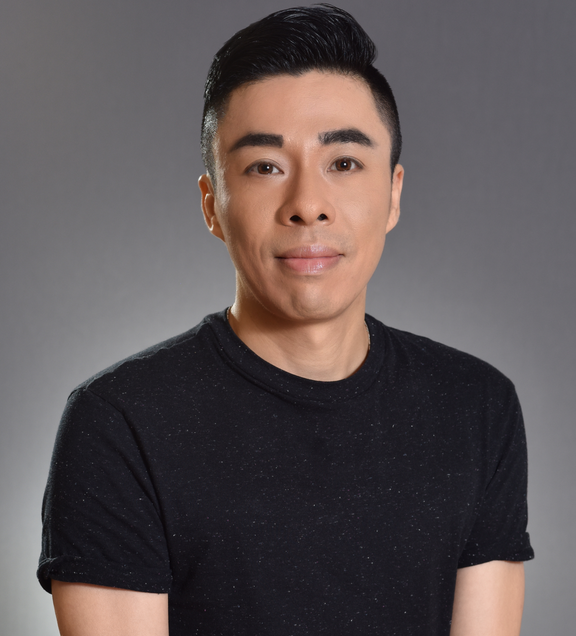 Dr. Liang Oscar Qiang is Research Assistant Professor at Drexel University College of Medicine in the Department of Neurobiology and Anatomy. He serves as a co-Investigator at the Drexel Site and is in charge of maintaining and differentiating the veteran-derived human induced pluripotent stem cells banked in BBRAIN.
Dr. Liang Oscar Qiang is Research Assistant Professor at Drexel University College of Medicine in the Department of Neurobiology and Anatomy. He serves as a co-Investigator at the Drexel Site and is in charge of maintaining and differentiating the veteran-derived human induced pluripotent stem cells banked in BBRAIN.
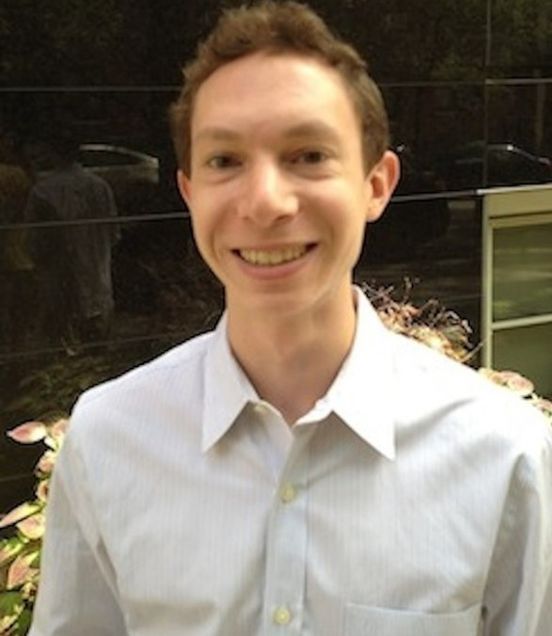
Philip Yates is an MD/PhD student at Drexel University College of Medicine working with Dr. Peter Baas and Dr. Liang Qiang in the Department of Neurobiology and Anatomy. Phil is investigating microtuble-based mechanisms and therapies for Gulf War Illness by differentiating veteran-derived human-induced pluripotent stem cells banked in BBRAIN into mature neurons and cerebral organoids.
Center for Disease Control (CDC)/ The National Institute for Occupational Safety and Health (NIOSH)
 Dr. James P. O’Callaghan serves as Distinguished Consultant, Centers for Disease Control and Prevention, and Head of the Molecular Neurotoxicology Laboratory in the Toxicology and Molecular Biology Branch of the Health Effects Laboratory Division at the Centers for Disease Control and Prevention, NIOSH. His research group investigates the molecular and cellular basis of glial activation, a dominant response of the central nervous system to neuroimmune-, chemical- and disease-induced injury. Prior to joining CDC-NIOSH, Dr. O’Callaghan served as the Senior Science Adviser to the Neurotoxicology Division of the National Health and Environmental Effects Research Laboratory, U.S. Environmental Protection Agency (EPA). At the EPA and CDC, Dr. O’Callaghan has conducted extensive research on the neurotoxicity profiles of many types of chemicals. He also has examined the neuroimmune and neurotoxic effects of drugs of abuse, nerve agents, and pesticides under external sponsorship (NIDA, CDMRP/DOD, CDC Foundation).
Dr. James P. O’Callaghan serves as Distinguished Consultant, Centers for Disease Control and Prevention, and Head of the Molecular Neurotoxicology Laboratory in the Toxicology and Molecular Biology Branch of the Health Effects Laboratory Division at the Centers for Disease Control and Prevention, NIOSH. His research group investigates the molecular and cellular basis of glial activation, a dominant response of the central nervous system to neuroimmune-, chemical- and disease-induced injury. Prior to joining CDC-NIOSH, Dr. O’Callaghan served as the Senior Science Adviser to the Neurotoxicology Division of the National Health and Environmental Effects Research Laboratory, U.S. Environmental Protection Agency (EPA). At the EPA and CDC, Dr. O’Callaghan has conducted extensive research on the neurotoxicity profiles of many types of chemicals. He also has examined the neuroimmune and neurotoxic effects of drugs of abuse, nerve agents, and pesticides under external sponsorship (NIDA, CDMRP/DOD, CDC Foundation).
Georgetown University
 Dr. James N. Baraniuk was born in Alberta, Canada, south of Banff. He earned his honours degree in chemistry and microbiology, medical degree, and unique bachelor’s degree in medicine (cardiology) at the University of Manitoba, Winnipeg, Canada. Thereafter, he moved to Akron, OH, USA, for his internship and internal medicine residency at St Thomas Hospital. After another year of internal medicine residency at Duke University Medical Center, Durham, NC, he trained with Dr C.E. Buckley, III, in allergy and clinical immunology. He moved to the laboratory of Dr Michael Kaliner at the National Institute of Allergy and Infectious Diseases, Bethesda, MD, and there began his long-standing collaboration with Dr Kimihiro Ohkubo. After 2 years studying neuropeptides, he joined Dr Peter Barnes’ laboratory at the National Heart and Lung Institute, Brompton Hospital, London, UK. Dr Baraniuk returned to Washington, DC, and Georgetown University, where he is currently Professor with Tenure in the Department of Medicine.
Dr. James N. Baraniuk was born in Alberta, Canada, south of Banff. He earned his honours degree in chemistry and microbiology, medical degree, and unique bachelor’s degree in medicine (cardiology) at the University of Manitoba, Winnipeg, Canada. Thereafter, he moved to Akron, OH, USA, for his internship and internal medicine residency at St Thomas Hospital. After another year of internal medicine residency at Duke University Medical Center, Durham, NC, he trained with Dr C.E. Buckley, III, in allergy and clinical immunology. He moved to the laboratory of Dr Michael Kaliner at the National Institute of Allergy and Infectious Diseases, Bethesda, MD, and there began his long-standing collaboration with Dr Kimihiro Ohkubo. After 2 years studying neuropeptides, he joined Dr Peter Barnes’ laboratory at the National Heart and Lung Institute, Brompton Hospital, London, UK. Dr Baraniuk returned to Washington, DC, and Georgetown University, where he is currently Professor with Tenure in the Department of Medicine.
University of Alabama
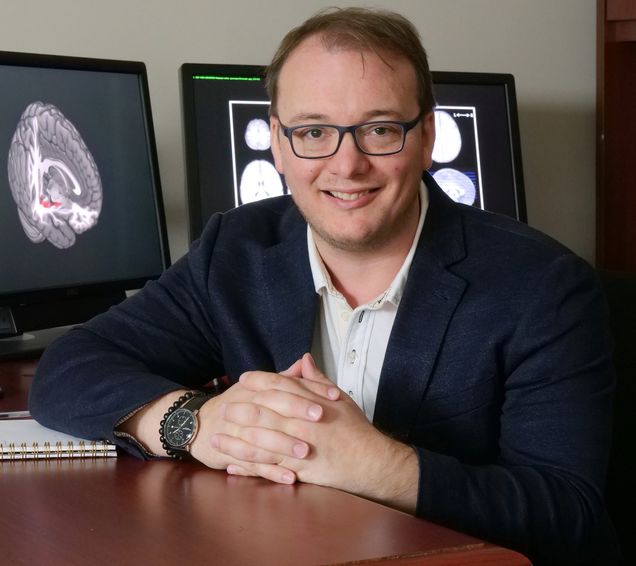 Dr. Jarred Younger is an Associate Professor at the University of Alabama at Birmingham (UAB), and Director of the Neuroinflammation, Pain and Fatigue Laboratory. Dr. Younger completed his doctorate in Experimental Psychophysiology at the University of Tennessee in Knoxville, and then completed postdoctoral fellowships at Arizona State University and Stanford University. He joined the Stanford faculty in 2008, and remained at Stanford’s Department of Anesthesia and Pain Medicine until transiting to UAB in 2014. Dr. Younger currently leads several projects in fibromyalgia, myalgic encephalomyelitis/chronic fatigue syndrome (ME/CFS), and Gulf War Illness. He uses neuroimaging, immune monitoring, and clinical trial techniques to test new diagnostic tools and treatments for pain and fatigue. His particular research focus is on how low-level brain inflammation drives chronic diseases.
Dr. Jarred Younger is an Associate Professor at the University of Alabama at Birmingham (UAB), and Director of the Neuroinflammation, Pain and Fatigue Laboratory. Dr. Younger completed his doctorate in Experimental Psychophysiology at the University of Tennessee in Knoxville, and then completed postdoctoral fellowships at Arizona State University and Stanford University. He joined the Stanford faculty in 2008, and remained at Stanford’s Department of Anesthesia and Pain Medicine until transiting to UAB in 2014. Dr. Younger currently leads several projects in fibromyalgia, myalgic encephalomyelitis/chronic fatigue syndrome (ME/CFS), and Gulf War Illness. He uses neuroimaging, immune monitoring, and clinical trial techniques to test new diagnostic tools and treatments for pain and fatigue. His particular research focus is on how low-level brain inflammation drives chronic diseases.
Roskamp Institute/ Tampa VAMC
 Dr. Laila Abdullah and her GWI team are focused on finding treatments and identifying blood markers to help with diagnosing GWI. Dr. Abdullah has over 15 years of experience in clinical and basic science research, particularly in the field of GWI. She has expertise in applying lipidomics, metabolomics and proteomics technology for translational research into GWI. Dr. Abdullah received an M.S. in Epidemiology from the University of London. She applied her clinical research training to identify potential biomarkers of neurodegenerative illnesses. As part of her PhD training, Dr. Abdullah developed and characterized mouse models of GWI to facilitate identification and preclinical testing of novel therapies in GWI mouse models. This model now forms the basis of most preclinical GWI research conducted at the Roskamp Institute. Upon graduating with her doctorate degree in 2012, Dr. Abdullah established a team that identified lipid dysfunction as one of the contributing factors in the etiology of GWI and discovered a potential therapy for treating the CNS component in GWI animal models. Dr. Abdullah’s ongoing GWI projects include applying lipidomics and metabolomics technologies to translate studies from animal models to human patients which are aimed at identifying novel blood-based biomarkers and treatments for GWI.
Dr. Laila Abdullah and her GWI team are focused on finding treatments and identifying blood markers to help with diagnosing GWI. Dr. Abdullah has over 15 years of experience in clinical and basic science research, particularly in the field of GWI. She has expertise in applying lipidomics, metabolomics and proteomics technology for translational research into GWI. Dr. Abdullah received an M.S. in Epidemiology from the University of London. She applied her clinical research training to identify potential biomarkers of neurodegenerative illnesses. As part of her PhD training, Dr. Abdullah developed and characterized mouse models of GWI to facilitate identification and preclinical testing of novel therapies in GWI mouse models. This model now forms the basis of most preclinical GWI research conducted at the Roskamp Institute. Upon graduating with her doctorate degree in 2012, Dr. Abdullah established a team that identified lipid dysfunction as one of the contributing factors in the etiology of GWI and discovered a potential therapy for treating the CNS component in GWI animal models. Dr. Abdullah’s ongoing GWI projects include applying lipidomics and metabolomics technologies to translate studies from animal models to human patients which are aimed at identifying novel blood-based biomarkers and treatments for GWI.